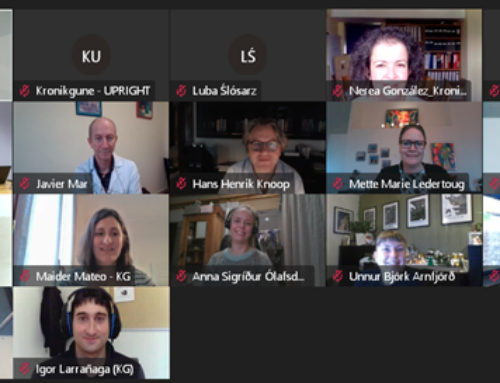You may have heard of the UPRIGHT project and even been asked to take part in it either as a parent of an adolescent or as part of the staff in a school taking part in the project. But why should you?
Being invited to b e part of an intervention study, when you are supposed to serve as a comparison without getting any involvement apart from answering questionnaires it may be less clear how important participation is. What is the benefit will be for you, your family or school community? While it may be true that the instant benefit for oneself by only giving away information for comparison may be unclear, the importance of participation is crucial for a social benefit. In intervention studies of high quality, where the main task is to find out if an intervention – in this case promoting well-being and resilience through the school – compared to no intervention makes a positive difference. To determine this, control groups are needed.
e part of an intervention study, when you are supposed to serve as a comparison without getting any involvement apart from answering questionnaires it may be less clear how important participation is. What is the benefit will be for you, your family or school community? While it may be true that the instant benefit for oneself by only giving away information for comparison may be unclear, the importance of participation is crucial for a social benefit. In intervention studies of high quality, where the main task is to find out if an intervention – in this case promoting well-being and resilience through the school – compared to no intervention makes a positive difference. To determine this, control groups are needed.
If we think about the time our children spend in schools, the cost of the school system for society and the importance of using time and resources wisely, it becomes clearer how it is of longtime value and may even be seen as a social responsibility to invest time in participating in a study for the purpose of allowing for comparison. This will in turn allow for reasonable decision making on a school policy level.
In most areas, it is relatively easy to engage adolescents, parents and school staff in the intervention schools. They get involved through a programme where teachers get training and learning materials to use in their schools, and parents get access to the same materials through a study platform. In these intervention schools, parents are also mostly positive about participation but may lack time and motivation to use the platform and be active themselves. We hope that they will find how the materials may have a positive impact on their own well-being if they get engaged.
The UPRIGHT project aims to build a mental well-being culture in schools in five European regions, through the co-design, delivery and validation of a training programme on mental resilience. The UPRIGHT general objective is to promote mental well-being and prevent mental disorders by enhancing resilience capacities in youths, through a holistic approach addressing early adolescents, families and education professionals. This means that in order to deliver the intended programme, we have to engage the whole school community including as many families as possible within each school additionally to reaching school staff and scholars.
In short, participation as a parent, also in case of being comparator, is extremely important to promote knowledge about well-being and resilience and to assess the success of implementation of the teaching methods and materials delivered.
Together we may build even better schools for our children!
Dr. Anna S Olafsdottir
Professor and Head of Faculty of Health Promotion sport and leisure studies at the School of Education,
University of Iceland





